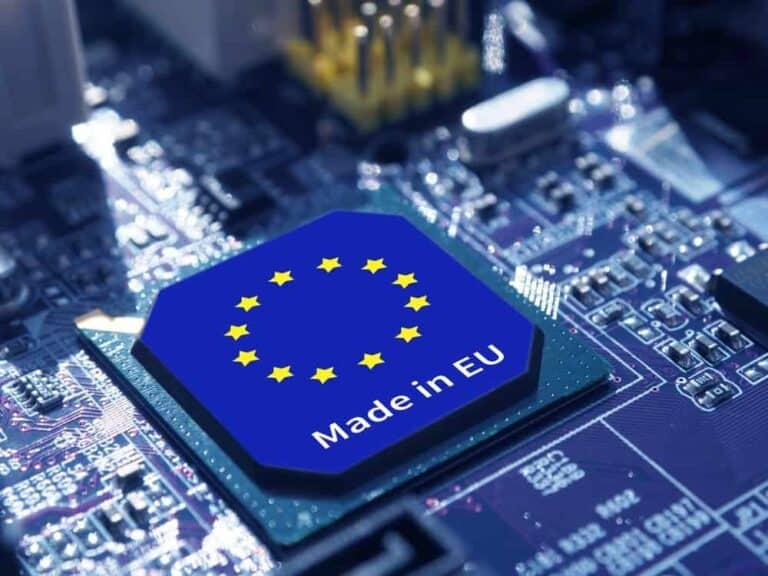The European chip industry advocacy organization European Semiconductor Industry Association (ESIA) is asking the European Union to speed up its support for the sector and ensure fewer export restrictions to boost the industry.
The interest group, whose members include chip makers Infineon, STMicroelectronics, NXP, ASML, and research institutes such as imec, Fraunhofer, and CEA-Leti, wants the incoming new European Commission to pay more attention to the interests of the European chip industry.
According to ESIA, the European chip industry needs new laws and regulations to compete with other world regions and ensure its continued growth and investment.
ESIA proposals
In the call to the upcoming European Commission, the interest group makes several proposals for this. It sees the European Chips Act as essential for building and strengthening the European chip industry. A new and adapted EU Chips Act 2.0 should further elaborate and support this policy. An important part of this Chips Act 2.0 is an accelerated permitting process for building chip factories. Currently, that process is enormously slow, which has negative consequences as there is already no certainty about Intel’s plant in Germany.
In addition, the bureaucracy surrounding the establishment of the European chip industry must be addressed further. This means aligning and streamlining all the processes involved in developing the chip industry, such as environmental issues, financing, manufacturing processes, technology, and talent attraction. Also, the entire supply chain for the chip ecosystem should be as open as possible.
Another important recommendation ESIA makes to the incoming EC is the appointment of a special “Chips Envoy.” This is a special position within the EC that will be responsible for all matters surrounding the European chip and semiconductor industry. Thus, this position becomes a kind of ‘one-stop-shop’ for all matters surrounding microelectronics.
Simultaneously, this will require the creation of several new boards in which industry and European politics are represented. ESIA specifically mentions the arrival of an Alliance for Processors & Semiconductor Technologies. Industry should also be involved in the European Semiconductor Board, set up within the first EU Chips Act.
Economic security and harmonization of export controls
Furthermore, the interest group calls for the “economic security” of the European chip industry to be regulated with incentives and support rather than restrictive and protective measures. This means, among other things, that the EU should increase chip cooperation with other regions, such as the U.S., Japan, and South Korea. To this end, the new EC must establish real partnerships in the period 2024-2029.
Finally, ESIA insists on harmonizing export controls (or restrictions) for the European chip industry among the various member states. Whereas member states, such as the Netherlands, impose export controls towards third countries separately, this will soon have to be harmonized.
In addition, the reasons for export controls must remain the same as their purpose: contributing to international peace and security. The interest group, therefore, wants a “structured mechanism” within the EU in which industry is constantly involved, for example, through a permanent advisory role of industry to an EU body to coordinate export controls.
Read also: Will the Dutch buckle under U.S. pressure to further restrict ASML?
